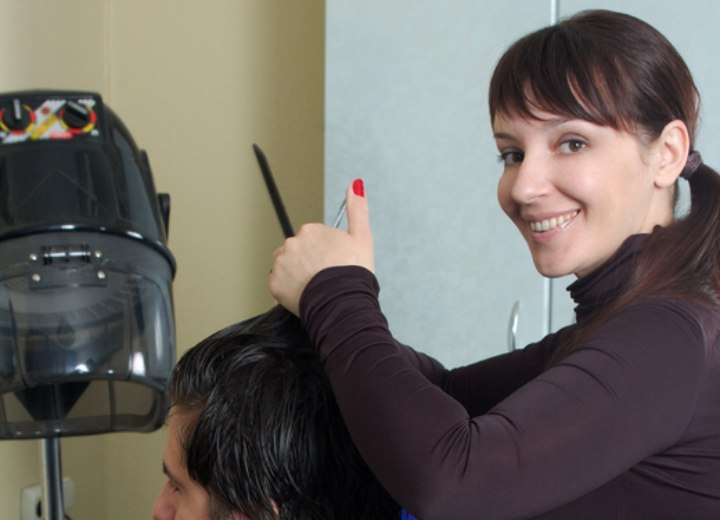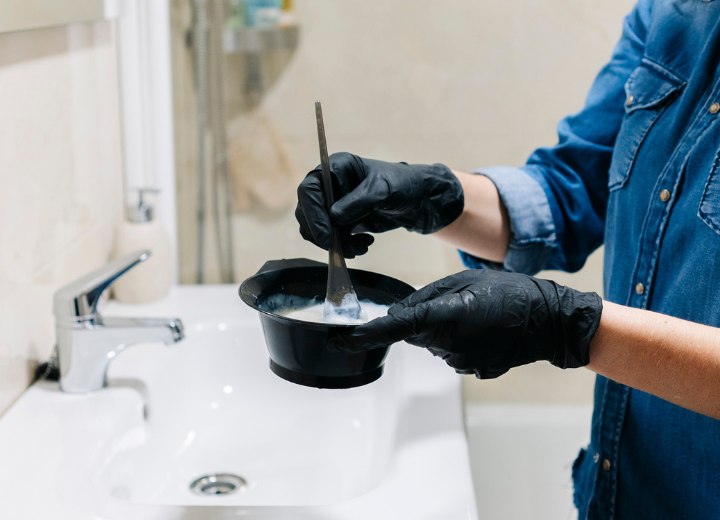Occupational Diseases Among Hairdressers

The conditions range from allergies, rashes, and irritations caused by prolonged or repeated exposure to chemicals or frequent handwashing, to infections contracted from clients who have hair and scalp disorders. Some of these conditions are common and, while nuisance-level, are not life-threatening. Others can be lifelong illnesses and dangerous if ignored or undiagnosed.
Here are some of the more commonly found conditions affecting hairdressers:
Note: This is NOT to say that these conditions WILL be found, and many of them require a failure in following sanitation and sterilization guidelines to be transmitted. For this reason, it is CRUCIAL that any stylist or esthetician follow the health and safety codes for their region strictly, and that customers should be carefully questioned about any potential illnesses. And most importantly, you should never perform a service on a client if you have any concerns about the health of their skin or hair. If you are in doubt at all, DO NOT accept the client for service.
Contact Dermatitis:
This is an irritation of the skin caused by repeated contact with irritants or allergens. In hairdressers, this can be sometimes seen as a rash or redness and swelling of the skin on the hands, due to frequent contact with the chemicals used in chemical services such as hair color and permanent waves, or even shampoos and conditioners.
In the study mentioned above, slightly more than 46% of the patients were shown to have contact dermatitis caused by allergic reactions to varied substances to which they were exposed.
Allergies:
Many hairdressers can have allergic reactions to commonly used substances in the salon setting. What makes this situation problematic is that these allergic reactions can develop quickly or increase in intensity with repeated exposure. The reactions may manifest in a number of ways, from rashes and irritation (see Contact Dermatitis above) or in respiratory episodes. It is important to read the OSHA safety guidelines for any and all chemicals used in the salon - from hair-related products to cleansers and sanitization chemicals.

If the product suggests that a mask be worn while working with the substances, you should always wear a mask. This is especially true when working with acrylic nail polymers and monomers. The powdered polymers that are used to build up the nail surfaces can adhere to the sinuses and even travel into the lungs and solidify. And if the individual is sensitive to the product, this can cause severe histamine reactions and lead to difficulty breathing and respiratory distress.
A number of the products that hairdressers use are very strong and can be dangerous if used improperly. This is one of the reasons why those pursuing this profession are thoroughly tested and licensed. Safety is very important, and most areas require continuing education courses in order to qualify for the renewal of a license to practice the cosmetology profession.
Infections:
Another common problem faced by hairdressers is the exposure to varied infections of the skin and hair. These can be fungal, viral, or bacterial, and are generally transmitted by inadequate safety measures being used. Fungal and bacterial infections can often be spotted due to the symptoms they present in the client.
If the hairdresser or technician fails to recognize these symptoms and/or disregards the safety protocols, he or she can be exposed and contract the infection as well. For instance, towels and tools improperly cleaned and sanitized can result in spreading bacterial and fungal infections to other clients and the professionals themselves.

Viral infections can be harder to spot and often will not be visible in many cases. For this reason, it is always important to ask your clients about infections or illnesses that they may have. Furthermore, it is because of viral infections that sterilization of reusable tools is imperative.
For example: a razor that is not properly sterilized can spread viral infections like herpes, Hepatitis C, and even HIV. In addition, any time there is an incident where there is broken skin involved, ALL tools should be immediately sterilized and precautionary measures should be doubled, regardless of the answers to any questions about infections or illnesses.
Note: Many hairdressers get vaccinated against Hepatitis A and Hepatitis B infections, as a precautionary measure. However, it is important to remember that as of yet there is NO vaccine against Hepatitis C (HCV) and the vaccines against the other forms of Hepatitis do not confer any protection against possible exposure or infection with Hepatitis C. Because of this, all safety protocols should be adhered to strictly and carefully.
©Hairfinder.com
See also:
Hair color allergies
Hairdressing industry and dermatitis
Hairdressers insurance
The positive and negative aspects of being a hairdresser